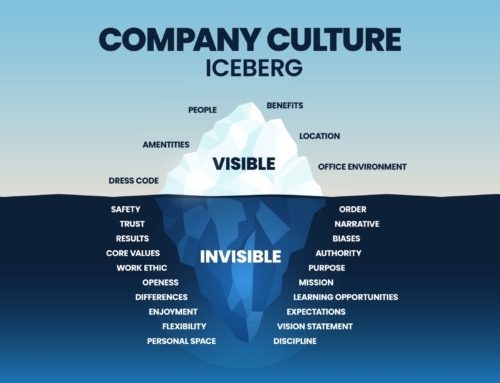I was speaking to a good friend of mine the other day about the nature of change and she raised an interesting scenario. When an employee in her organisation was put into a better position, a promotion that they willingly accepted, they brought with them enough of the past to potentially derail their future. It struck me that this was a really interesting observation. In HR we are constantly faced with organisational challenges around change and the negative responses to those changes and the symptoms that flow throughout the organisation (see our blog on the Change Diagnostic Index), but we seem to automatically accept that when a person willingly takes on a new challenge that there are no ‘change challenges’.
The facts are that this is rarely the case, it is not the willingness to engage in the change, it’s a willingness to let go of past attachments and behaviours that becomes the challenge.
A newly promoted manager is excited for their new challenge to step up the ranks within their organisation, however, while they have brought with them hope and optimism, they’re also bringing the baggage of the past. Some of that baggage is good and some of it should have been left behind. How do they decide which is which? Without considering that question, they bring it all. In their attempts to establish themselves they hang onto the things that gave them comfort in the past in their new environment, and not all of it is appropriate. This is when the experience and the exciting challenge starts to come unstuck.
With good mentoring or coaching, the new manager can start to focus on what things to take forward and what things to leave behind.
Personal growth means evolving who you’re ‘being’, and a different role demands different ways of ‘being’ (see our blog Leadership: Behaviour versus Intention). It’s when we get stuck at the wrong level of being for the new context that the Peter Principle kicks in.
When starting something new we should create a totally new context for that relationship. This change will help you move forwards rather than being stuck in the past.
This can happen in our private life as well, the divorce rates for second marriages is higher than for first marriages. When a couple get together, their new partner becomes a proxy for every other relationship they’ve had to that point. The relationship may be new and exciting, but there are many things from the past they bring into the current and future that were best left in the past. Starting something new should mean creating a totally new context for that relationship in consideration of the other person or people, not as a continuation of the past and past behaviours. Too often we are ‘stuck in our ways’ as the old expression goes, but all behaviour can change with focus and diligence, nothing is so hard wired if we’re totally willing to adapt to the new context.
So when you’re making even the most exciting of changes for yourself, like moving to a new job, into a new relationship even moving to a new country, consider who you are being in that new context, look at the change in consideration how you should be being and make a considered choice of what helps you move forward and what are the anchors and ties that are holding you back.














Dr Susan Roberts says: